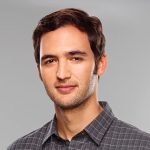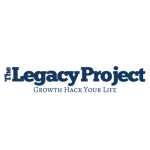Bruce Bueno de Mesquita is a political scientist specializing in international relations and foreign policy. He is a professor at New York University and senior fellow at Stanford University’s Hoover Institution. Bruce is a former Guggenheim Fellow and founded the company Mesquita & Roundell, which makes political forecasts.
My Definition Of Success | In my case the world of politics – works as distinct from addressing how we would like it to work. This desire to understand and help explain complex phenomena has always been my view of success as a researcher.
What Drives Me | The excitement of trying to solve complex political puzzles such as why dictators succeed by impoverishing their population while democrats do a good job of helping people and lose their jobs quickly even if they are not faced with term limits (themselves a strategic response to prevent democratically elected leaders from holding power for long). Or why people organize themselves into blocs like ethnic groups, linguistic groups, religious groups, occupational groups and so forth and how and why people choose one way of organizing themselves over another.
My Key Talent | I have been willing to risk criticism and rejection and, indeed, have often faced both by my peers who believed that my approach to our common subject (politics) was wrongheaded. I believe it is important to satisfy an audience of one – yourself – by doing what you believe is right in life, even if it comes with resistance from others. In my case, I have studied politics, especially international politics, from a point of view that was out of the mainstream for most of my career (although it now is accepted as a legitimate basis for investigation).
I applied mathematical reasoning (using game theory) and concluded that politics is about individual interests, not national interests. In addressing criticism I have generally divided critics into three groups:
(1) those who understand what I am doing and whose critiques deserve to be taken seriously as they are being smart, thoughtful and insightful – I have learned a tremendous amount from such criticism;
(2) those whose critiques are grounded in a lack of understanding of what I have tried to do. In their case I try to understand how I have failed to communicate adequately to make my logic and evidence transparent to them so that they can then critique my work on its terms; and
(3) those predisposed to oppose what I am doing because it is not what they favor. In their case I try to understand whether any of the critique is capable of being addressed through logic and evidence.
A Key Strength | I greatly enjoy my work and so never view taking time for research, writing, or teaching as drudgery. I happen to have I believe a good work ethic – I stick with problems until I feel I have a good solution to them and I am fortunate to have a great ability to concentrate so that when I am doing research I am able to ignore distractions.
I Invest In My Intellect | I try to continually invest in my intellectual capital, learning new tools of analysis, learning to expand my knowledge of unrelated or distantly related fields and just trying to realize that knowledge requires constant investment in learning as well as in effort. We are never done studying.
How I Use My Mind | I try to read broadly and to attend academic presentations that are unrelated to my subjects. I have learned over the years that by seeing how other people tackle problems of interest to them I can gain some insights into how to think about problems of interest to me. It is amazing how much can be borrowed from thinking in totally unrelated fields. Gradually, putting pieces together from here and there it is possible to gain new ideas into problems that my readings etc. did not directly address.
Lessons I Have Learnt | Perseverance and respect for what others are doing opens doors to new ideas, new ways of thinking, new methods and new understanding.
Dealing With Doubt | I perpetually feel self-doubt. When I work on a project I tend to be very excited by its prospects but usually within a week of finishing I am convinced that it could have been done much better. That is disheartening for a while but it also serves as an important stimulus for my next effort – try to make the analysis better. As early as my second semester of graduate school I was convinced that I could never be an effective researcher as I watched the technical (statistical) prowess of many of my fellow students. I came close to giving up until my professors awarded me a large fellowship at which point I realized there was a greater premium on thinking hard and creatively about politics problems than on sheer computational power.
Performing At My Peak | I don’t believe I am ever performing at my peak and that is a regret. I find that my performance waxes and wanes. I may spend a long time – even a decade or more – thinking about a puzzle until I feel ready to tackle it. Surely this could be done more efficiently if I had a more flexible mind.
My Inspirations And Role Models | My parents were great inspirations in dealing with day-to-day life. My wife and children have inspired every day of my life. Watching children grow, learn and become parents themselves is an awesome experience. Six teachers over the years – my third grade teacher (Phyllis Taylor), my first political science professor (Solomon Resnik), three of my dissertation advisers and graduate school teachers (Richard Park, Donald Stokes and A. F. K. Organski) and my old department chair (William Riker) each in different ways inspired me and provided wonderful role models. Phyllis Taylor noticed that I seemed able and helped propel me into a more demanding school curriculum and gave me the confidence to believe I could be successful. Sol Resnik, whose approach to the study of politics was antithetical to mine, nevertheless was a prime inspiration in my decision to study politics in a mathematically rigorous way.
In one class lecture he established indelibly for me how important it is to know explicitly what assumptions combine to produce propositions about the political world. He remained a life-long friend and inspiration. Richard Park was a traditional and superb area specialist who upon reading my dissertation suggested that my results implied that he had misspent his academic life – he said this with great warmth, enthusiasm and support.
His openness to other ways to think about things was what I believed academic life should be like. Only later did I come to understand how rare that quality of openness was. He was a remarkable man who did everything he could to help advance my career and to be an inspiration until the day – way too young – that he died. Donald Stokes introduced me to mathematical modeling in political science and to the work specifically of William Riker who later became my inspiration while I was a professor at the University of Rochester.
Stokes literally paid out of his own pocket to support a research project I wanted to conduct in the summer of 1968. I often wonder whether I would do as much for my students. Kenneth Organski taught me to think about international politics and domestic politics as being one and the same. What is more he taught me to love and enjoy life. He was the most charismatic person I have ever known. He was a great teacher, a very close friend and even a business partner. Every moment with him was sheer delight. William Riker was a once-in-a-century man. More than anyone else, he invented mathematical political science.
It was my dream after Donald Stokes’s course to work with Riker someday. I had the good fortune of being hired by him in 1973 to be a professor at the University of Rochester where he provided a nurturing and protective environment for those of us trying to understand politics through the logic of game theory (strategic reasoning). But he was more than just an inspiring thinker. He was, as my mother would have put it, a Mensch.

As host of National Geographic Channel’s Emmy-nominated series, Brain Games, Jason Silva Legacy Project will guide you through the twists and turns of your grey matter. Through a series of man-on-the-streets and experiments, Silva will be joined by top experts in the fields of cognitive science, neuroscience and psychology, who will give you the “why” […]

Penny Mallory TLP is one of the UK’s top female motivational speakers, drawing her experience from her years in Motorsport as a Rally Driver, and as a Performance Coach within various sectors. Penny is living proof that building Resilience and Mental Toughness are vital if you are to thrive in this world. Penny has worked […]

Adrian Gore is the founder and Chief Executive Officer of the Discovery Group. He launched Discovery in 1992, with a simple and core purpose of making people healthier and enhancing and protecting their lives. Discovery has since evolved into a diversified and multinational financial services group. Discovery is widely acknowledged as a global thought leader […]

Nominated to the Women in Finance Awards in 2016, Inna Rosputnia is known as the female trader who turned $10k into $3,000,000 in just a few years of trading. She has run one of the fastest growing investment companies and was recently named “Wall Street Queen” by one of the bankers during the Women Economic […]

Ben started in TV more than 14 years ago where he was involved in both live and pre-recorded programs at Namibia’s one and only national broadcaster: NBC. Fast-forward several years, he found himself in the fantastical world of TV Commercials hoping this industry to be full of excitement, glitz and glamour. Needless to say, this […]

Rachel Goble grew up in an interconnected and multicultural world. Whether traveling to Central America with her family to survey land for the founding of a non-profit or trudging through the Sierra Nevada mountains as her parents sought to awaken Christians to our role as creation’s caretakers, Rachel learned early that the world’s peoples and […]

Alex graduated from Hampshire College in 2006 with a BA in Development Economics, shortly after founding Working Villages International in 2005. Having traveled throughout sub-Saharan Africa, he decided to help farmers in the Ruzizi Valley region of the Democratic Republic of Congo, and has been working on development in that region ever since. He has […]
No results available
ResetThese remain the property of its owner and are not affiliated with or endorsed by WeSpeak Global.
Our Mission
© All rights reserved 2024. Created using VOXEL THEME
1902 Wright Place, Carlsbad, CA, 92008